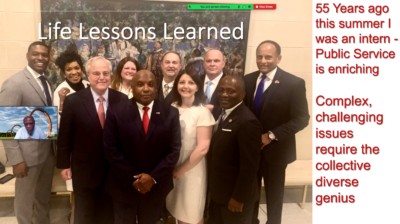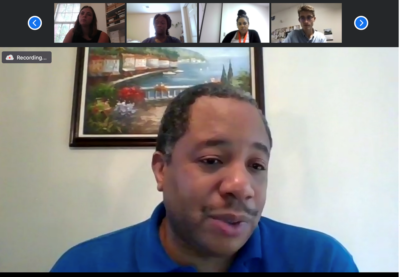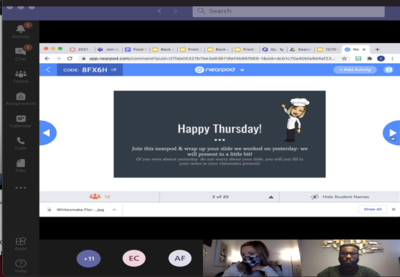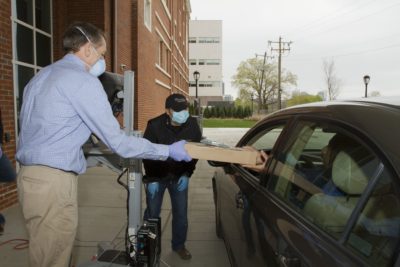
This is the fourth article in a series about the NC COVID-19 Student Response Corps, a cross-sector partnership to help address the strain COVID-19 placed on government and nonprofit organizations compounded by jobs and internships lost unexpectedly. The Response Corps was developed and launched by the NC Office of Strategic Partnerships and Lead for NC along with the many partner organizations listed below, and others.
COVID-19 has presented unprecedented difficulties to colleges and universities across the country. The challenges range from a sudden need for remote instruction, to job and revenue loss due to fewer students on campus, to mental health concerns for students and employees. One ongoing challenge is the unexpected loss of student jobs and internships. The NC COVID-19 Student Response Corps was one solution to this adversity, benefitting students, government, nonprofit organizations, and institutions of higher education.
North Carolina’s college and university career services professionals were critical to the launch and success of the Response Corps. As soon as government and nonprofit employers shared available internship opportunities, career service staff from colleges and universities across North Carolina used diverse strategies for sharing the opportunities with students.
At Western Carolina University, faculty members shared internship opportunities with their students and classes. Susan McCracken, the director of career development and economic engagement at Appalachian State University, notes that her team continues to use the Student Response Corps database to connect students with organizations. “It democratizes opportunities,” she said.
The database, which lists organizations and describes opportunities, makes the process transparent and accessible. In addition, the existence of some remote-only opportunities allowed students to work for organizations they might not have been able to pre-COVID.
Another positive outcome of the Response Corps was to alleviate some of the burden on career service professionals. Michael Clinton, employer relations specialist at UNC-Greensboro, recounted some of the COVID-19 related challenges. This included the loss of internships, many of which could not transition to a virtual setting and were eliminated. The Response Corps offers opportunities from organizations that are ready and willing to accept virtual interns.
“…the opportunities [the program was] providing for students were great and timely due to the mass of opportunities being cut due to COVID-19,” Clinton said. McCracken from Appalachian State echoed this sentiment: “It was huge for students to have an opportunity to do something remotely.” The Response Corps allowed one of her students with public sector aspirations to find an opportunity in state government and remain on his career trajectory despite the disruption to his original plans.
The Student Response Corps also strengthened ties among North Carolina’s public, higher education, and nonprofit sectors. The initiative was a novel and beneficial collaboration: In addition to supporting students and career service professionals, the Response Corps provided needed capacity to North Carolina nonprofit and government entities, which helped those entities continue serving North Carolinians and respond to COVID. As UNC-Greensboro’s Clinton commented, “I believe that North Carolina can be a progressive and responsible example on how partnerships and collaborations can positively affect every area in your state.”
Student participants in the Response Corps reinforced the benefits of the experience, including deepening their interest in public sector work and teaching them about the diverse roles within North Carolina’s public institutions.
“Public service is a career path that is important for students to understand and to receive exposure to,” noted Theresa Paul, the director of career services and a career counselor at Western Carolina University. “Partnerships like the NC COVID-19 Student Response Corps program allow for the opportunity for students and local governments to learn from each other.”
Opportunities for North Carolina’s college students to experience the public sector firsthand is crucial for building a talent pipeline to the public sector. “The government is us, students should get excited about it,” noted McCracken. The NC COVID-19 Student Response Corps is an example of the promise of government-university partnerships and highlights the breadth and diversity of opportunity in our state’s public sector. Clinton reflected upon the effort’s success and the lessons it taught students about public service, which also apply to forming innovative partnerships in a pandemic: “When times get tough, being flexible and resilient counts.”
Read the other articles in this series below.








